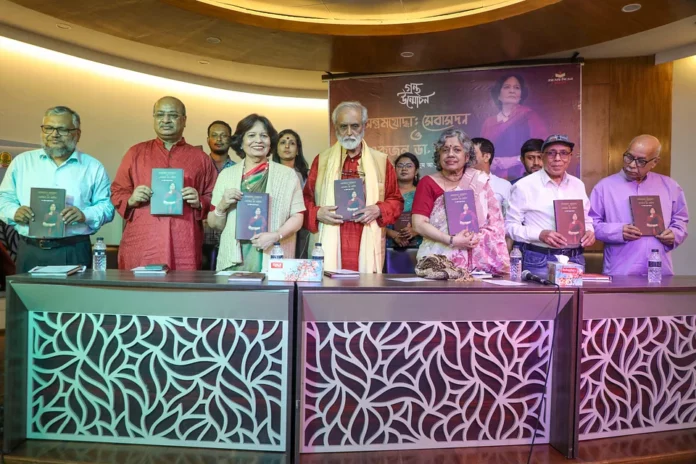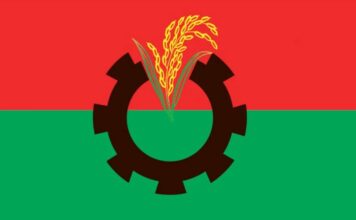A house on road number 7 in Dhanmondi of the capital was called 'Sada Bahar'. In 1971, the first rehabilitation services for women who were tortured by the Pakistani occupation forces and their local collaborators were started in this home. Halida Hanum Akhtar was involved in the service. He is addressing those women as 'Sambhra Joddha'.
Halida Hanum Akhtar is a doctor by profession. He has an international reputation as an expert in Gynecology and Obstetrics. At the age of 27, he got the opportunity to work in Sada Bahar. He wrote the book with four years of working experience. Named the book - 'Sambhramjoddha: Sebasdan and a Dr. Halida'. The book was unveiled in a function at Bangla Academy on Saturday.
In 1971, women victims of torture were recognized as heroes. Sohrab Hossain, joint editor of Prothom Alo raised a question on the occasion whether the new word 'Sambhramjoddha' for these women creates any controversy or doubt. He said that society has not integrated women victims of torture. Apad thought. Some of the abused women migrated to Pakistan. He also said, 'We took the glory of the war, but we could not feel its greatness.'
The Chief Guest of the program, Director General of Bangla Academy Muhammad Nurul Huda commented that the term 'Sambhramjoddha' will survive. According to him, time is captured by language or words. Sambhramojdha is right in terms of time. He said, 'There are words spoken from the heart in this book.'
The event started and ended with a speech by Halida Hanum Akhtar, the author of the book. Before the end of the program which lasted for about three hours, he said that he dared to do this new kind of work. He expressed his gratitude to everyone who helped.
Halida Hanum Akhtar thanked Shirin Jahangir. Shirin Jahangir was the project director of the National Women's Rehabilitation Board during the post-liberation war. In today's program, Shirin Jahangir said that many women were raped in March-April 1971. By February 1972, when rehabilitation services began, many were several months pregnant. 30 rehabilitation centers were established across the country for lakhs of destitute women. Non-formal education and employment arrangements are made for these women by the board. NGOs come later.
Shirin Jahangir said that Mother Teresa came to this service many times to take the children left by their parents to her ashram.
Halida Hanum Akhtar wrote in one place of her 96-page book, 'What was even more painful at that time, after the birth of the child, many of those girls would frequently ask us if anyone had searched their homes or not. Father, brother, mother—did anyone call? It is true that those who once left them, no one looked for them.…When people are swimming in the tide of joy in free and independent Bangladesh, these oppressed women are crying silently; After a few days, many of them recovered but are still looking for ways to hide themselves.'
President of the program and prominent gynecologist Professor AHM Touhidul Anwar Chowdhury said that after independence, he handed over three-four children left by their parents in Chittagong to foreigners. Many others may have such experience.
Khairul Islam, regional director of the international NGO WaterAid South Asia, requested everyone present at the event to buy and read the book. Channel Eye's senior journalist Jannatul Bakeya Keka said, the book would have been better if written 10-15 years ago.
Professor Mansoor Musa, former director general of Bangla Academy, was present at the event to pay tribute to the writer for doing an extraordinary work. He said, by writing the book, Halida Hanum Akhtar has revealed a dark and dark chapter.










